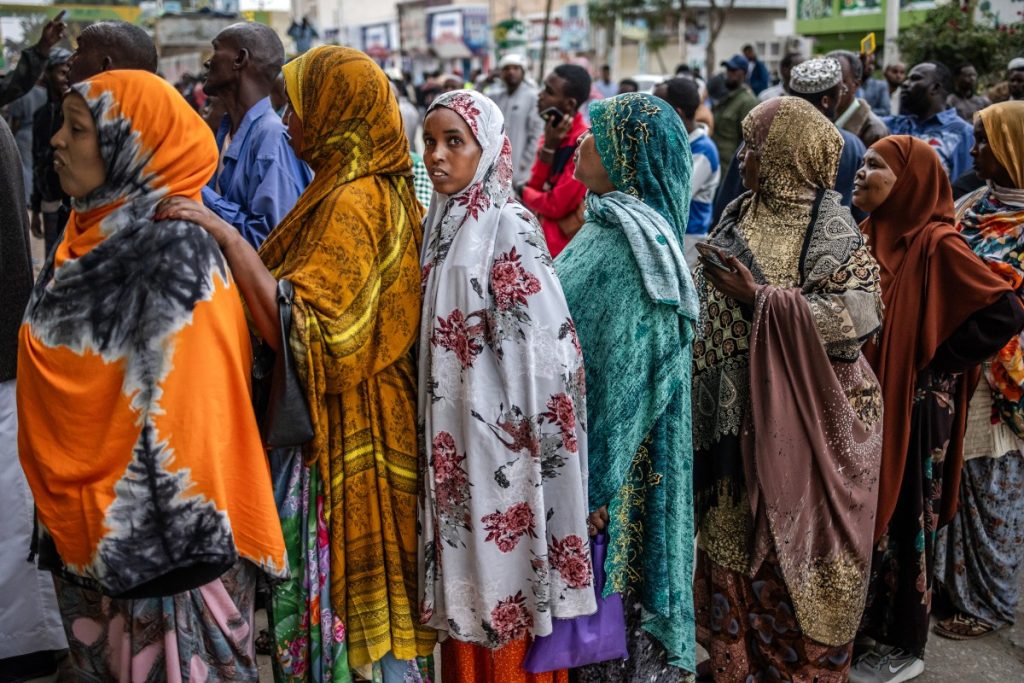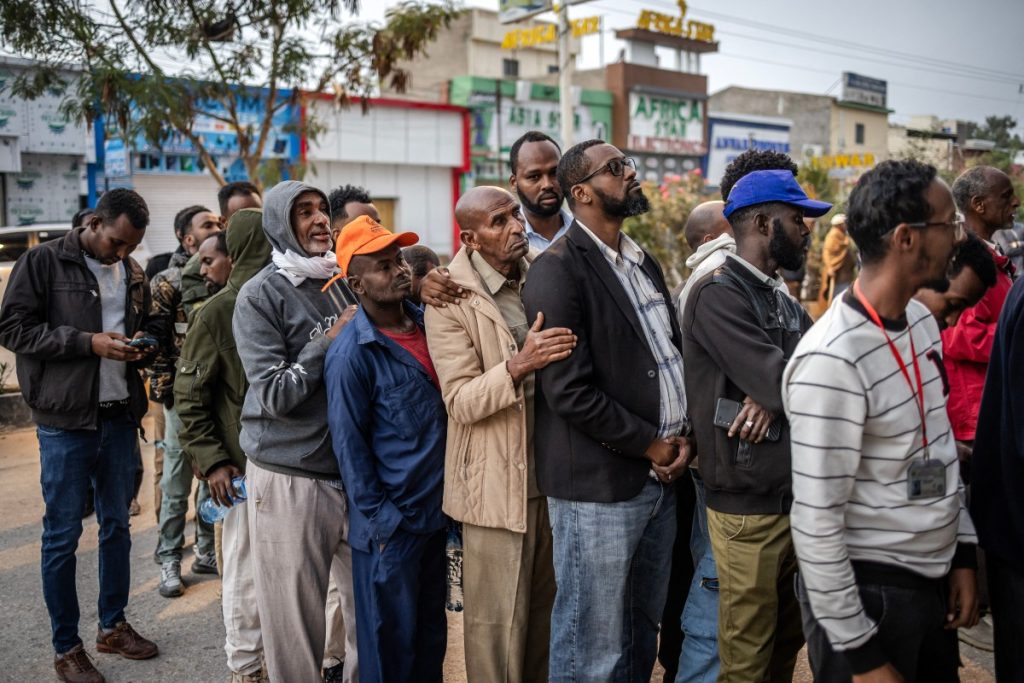Voters gathered early at polling stations on Wednesday in Somaliland to elect their president in a rare moment of stability in a region often marked by violence and unrest.
Since declaring independence in 1991, Somaliland has been an oasis of calm compared to Somalia, yet it remains without formal recognition from the international community. Despite the lack of recognition, the people of Somaliland continue to exercise their democratic rights.
In the capital Hargeisa, hundreds of voters lined up before dawn, hoping to beat the heat. Many stood in line proudly, displaying their voting cards and waving the territory’s red-and-white flag. Under the shadow of a MIG fighter jet—a relic from Somaliland’s struggle against Somali government forces in 1988—five polling stations were set up in tents in the city’s main square.

The three main candidates—President Muse Bihi, his rival Abdirahman Mohamed Abdullahi, known locally as “Irro,” and Faysal Ali Warabe—cast their votes at the Civil Service Training Institute. Bihi also tested new technology, using special glasses introduced this year to identify voters by their irises.
“It’s a very important day because we have to showcase to the world our peaceful coexistence in Somaliland,” said Hamza Moussa Ali, a 32-year-old aid worker.
However, despite its peaceful elections, Somaliland has found itself at the centre of regional tensions. In January, it signed a controversial agreement with landlocked Ethiopia, leasing 20 kilometres of its Red Sea coastline. In exchange, President Bihi claimed Ethiopia would formally recognize Somaliland’s independence—a claim Addis Ababa has never confirmed. The memorandum of understanding has stirred anger in Somalia, leading to escalating tensions with Ethiopia that have raised concerns among international observers.
Bihi, who has been in power since 2017 as part of the Kulmiye party, has made this agreement a cornerstone of his re-election campaign. His message is clear: progress hinges on him staying in office. “That’s his main argument, his main agenda in the election,” said Guleid Ahmed Jama, a local lawyer and political analyst.
Yet concerns about the economy and stability loom larger for many of Somaliland’s 1.2 million voters. The territory has its own currency, passports, and military, but the lack of international recognition has stymied economic growth, limiting access to foreign loans, aid, and investment.

The run-up to the election has been colourful, with lively rallies across the region, but also contentious. The opposition has accused Bihi of authoritarianism and division, pointing to his record of suppressing dissent and delaying the election by two years under the pretext of “technical and financial reasons.” Hood Abdullahi Adan, an opposition supporter, expressed frustration, saying the region had “gone backwards” under Bihi’s rule, citing rising conflict, inflation, and hunger.
Bihi’s critics accuse him of deepening clan divisions, which they say led to the partial loss of the Sool region in 2023 after months of clashes with pro-Mogadishu forces. The violence, compounded by his election delay, has left many skeptical of his leadership.
His main rival, Irro of the Waddani party, is a former ambassador and long-time speaker of the Somaliland parliament. Though offering few new policy changes, Irro has campaigned on being a more unifying figure. “There is not much visible difference ideologically between the two main political parties,” said Jama. “But the differences in personality between the contenders matter a lot here in Somaliland.”
As the people of Somaliland cast their votes, their eyes are not just on who will be the next president but also on the future of their fragile, unrecognized republic. Amid rising regional tensions and lingering internal challenges, the outcome of this election may shape whether Somaliland can maintain its stability or whether it faces greater conflict on the horizon.


